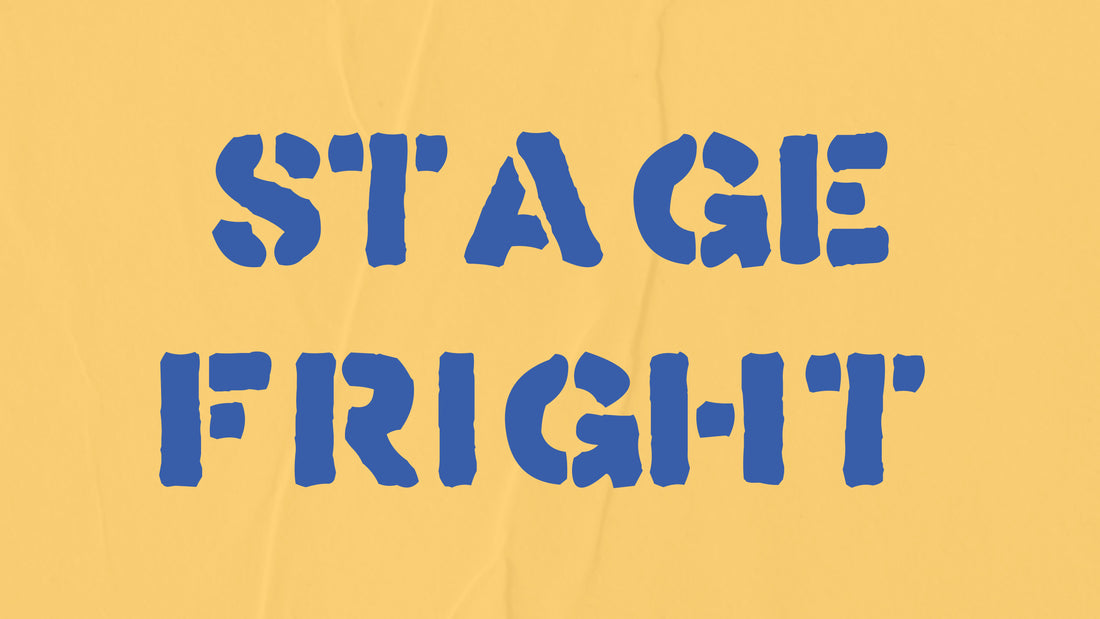
Stage Fright
Share
In March we are publishing Touring and Mental Health: The Music Industry Manual. Written by health and performance professionals and edited by Tamsin Embleton of the Music Industry Therapist Collective, it covers a wide range of issues that people face going on the road, including addiction, group dynamics and dealing with the media.
'It should be the first thing we all pack when we head out on the road', says Philip Selway of Radiohead
I think the manual is both timely and over-due. The language around mental health and our understanding have dramatically changed recently, but struggles with poor mental health have been present in the music books we have published throughout the last fifty years.
Perhaps the most obvious and explicit way mental health has traditionally featured in music books is in the form of stage fright. A quick trawl through our catalogue brings up hundreds of references to it.
Musicians have traditionally been without recourse to professional help when dealing with stage fright, relying on coping strategies discovered through the school of hard knocks.
In the first part of his autobiography, Salad Daze, Wayne Hussey has a clear-eyed view of this:
'For most musicians playing live is our life-blood, our pulse, as essential to us as air, but we all suffer with stage fright to varying degrees and all have our own idiosyncratic and sometimes peculiar ways of dealing with it.'
Wayne goes on to note that some have sadly not been able to continue to perform.
Jimmy Webb vividly described the feeling of stress and anxiety he experienced performing on television in his memoir:
'One reaches the point where the nerves are trying to climb up through the skin and escape the body. This is stage fright.'
Sifting through our books, it seems like stage fright can be hugely impactful in the early stages of a career. The terror of facing an audience for the first time could be too much - both Jim Morrison and Robert Johnson at times chose to perform facing away from the audience. In his autobiography Loudon Wainwright III reveals that while performing in coffee shops his anxiety ultimately influenced his performing style:
'I physicalised my fear into strange, jerky body gyrations, replete with leg lifts, facial grimaces, and lots of tongue wagging'.
Musicians' attempts at self-medication through drugs and alcohol are, of course, also present.
There are examples of artists overcoming stage fright due to increased self-confidence or some change in group personnel. In his biography of ABBA Carl Magnus Palm notes that Frida, for instance, enjoyed 'a sudden and quite dramatic release from her stage fright' during a particularly fulfilling 30-date cabaret tour in 1972. Frida is quoted as saying that 'all of a sudden I just felt, "now the pieces have fallen into place", and that made me feel secure for the first time'.
Touring and Mental Health: The Music Industry Manual sets out to offer solid guidance and resources for dealing with mental health struggles, including tools, artist testimonies and clinical expertise.
The manual includes a chapter dealing directly stage fright, or Music Performance Anxiety (MPA) as it is known clinically. Written by Professor Dianna T. Kenny (PhD, FAPsS), the chapter is a thorough examination of MPA. It offers guidance and advice, as well as an engaging examination of The Band's 1970 song 'Stage Fright', which paints a vivid picture of the emotional difficulties experienced by popular musicians in the practice of their craft.
